Aghdam Industrial Park: Preferential regime, export-oriented development Transforming Karabakh
In recent years, Azerbaijan's industrial development has increasingly focused on creating agro-industrial zones in the Karabakh and East Zangezur economic regions. These areas benefit from financial incentives and fiscal preferences, while production and service-logistics clusters with significant export potential are taking shape.
The Aghdam region, in particular, has seen rapid progress, with the development of a major industrial zone alongside infrastructure, housing, and social facilities. During a visit to the Karabakh region this week, President Ilham Aliyev reviewed ongoing work at the Aghdam Industrial Park and participated in the inauguration of several new factories.
Following a presidential decree issued on May 28, 2021, work began on establishing the largest industrial zone in western Azerbaijan—the Aghdam Industrial Park, spanning 190 hectares. Over the past few years, under the guidance of Agency for Development of Economic Zones (ADEZ) within the Ministry of Economy, significant progress has been made in constructing essential infrastructure, including energy, utilities, transport, communication, and internet systems, for the emerging industrial cluster.
The Aghdam Industrial Park enjoys a strategic location near major road and rail networks, greatly facilitating the transport of raw materials and the export of finished goods produced at the site. The area’s favorable business environment has attracted investors, speeding up the construction of industrial, processing, service, and other facilities.
This development has been closely aligned with the objectives of the First State Program for the "Great Return" to Azerbaijan's liberated territories. Under this program, the development of the industrial sector is intended to provide employment for the future residents of the cities and villages being rebuilt in the Aghdam region, where around 42,000 people are expected to be resettled in the medium term.
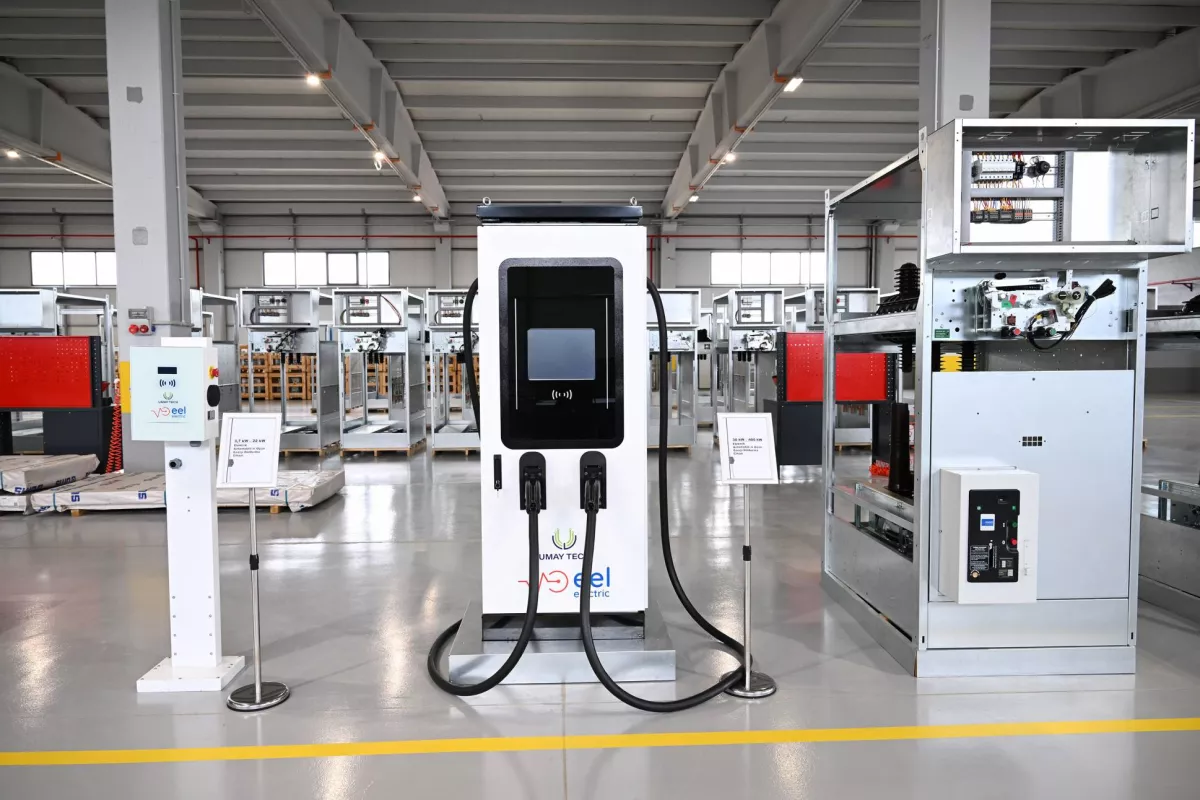
Currently, 27 businesses hold resident status in this industrial zone, with an additional six companies registered as non-residents. Their total investments are estimated at over 238 million manats ($140 million). According to ADEZ, residents of the Aghdam Industrial Park have already invested more than 72 million manats ($42.3 million) in industrial projects, creating around 300 permanent jobs. In the near future, as more enterprises come online, a total of 2,090 new jobs are expected to be created.
The Aghdam Industrial Park has prioritized the production of construction materials, including pipes, metal products, facade plaster, insulation materials, wallpaper, reinforced concrete structures, and roofing. Additionally, facilities for the production of ventilation and fire protection equipment, footwear, tobacco products, wallpaper, and railway signaling equipment (automation and telemechanics) are set to be launched.
Looking ahead, plans include packaging agricultural products, producing fruit and vegetable preserves, meat and dairy products, processing animal feed, manufacturing fertilizers, and establishing a service for maintaining cold storage units. In terms of the number of registered residents, Aghdam Industrial Park is poised to become the second-largest industrial cluster in Azerbaijan, following the Sumgayit Chemical Industrial Park (SCIP).
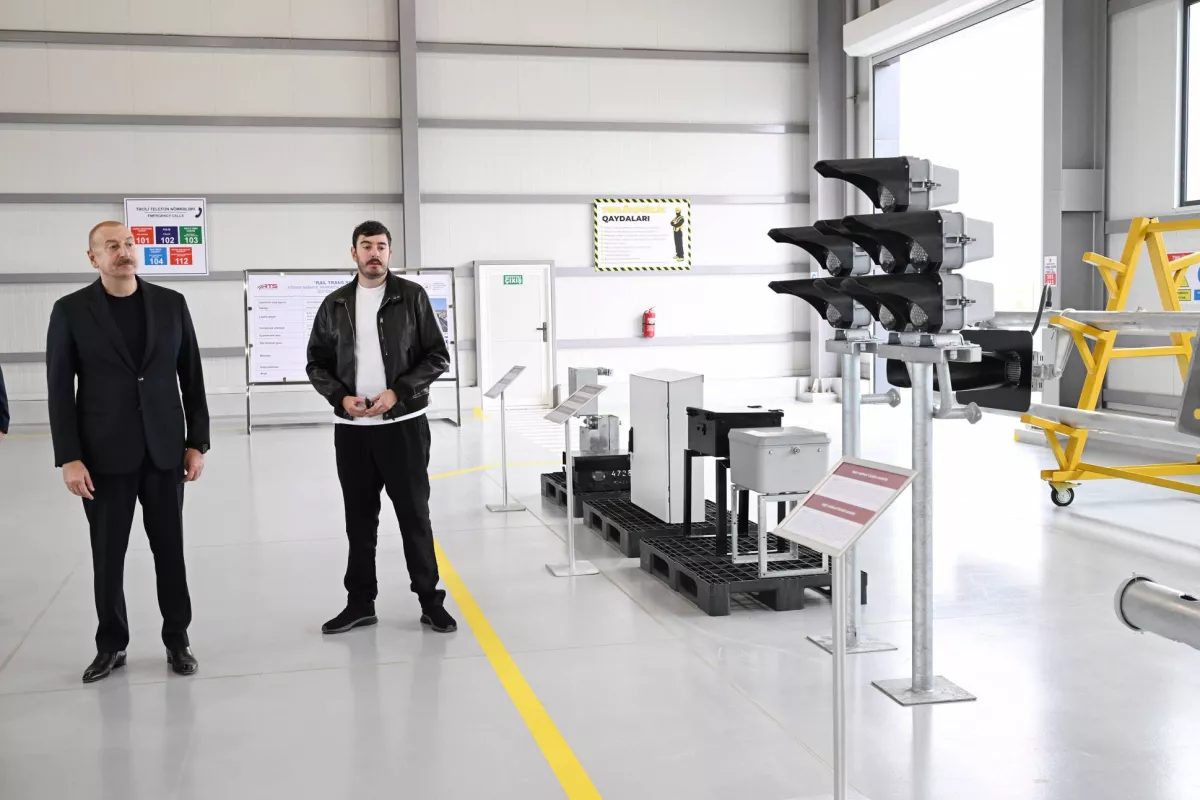
By the summer of this year, the construction of several industrial enterprises within the Aghdam Industrial Park was completed, and on September 19, President Ilham Aliyev participated in the official opening ceremony. Notably, the head of state inaugurated a state-of-the-art footwear factory, operated by BAFCO Invest LLC, equipped with modern German technologies. The factory produces various types of footwear, including safety shoes with metal protection for use in the construction industry. With a workforce of 120 employees, the factory has an annual production capacity of 510,000 pairs of shoes, over one-third of which is intended for export.
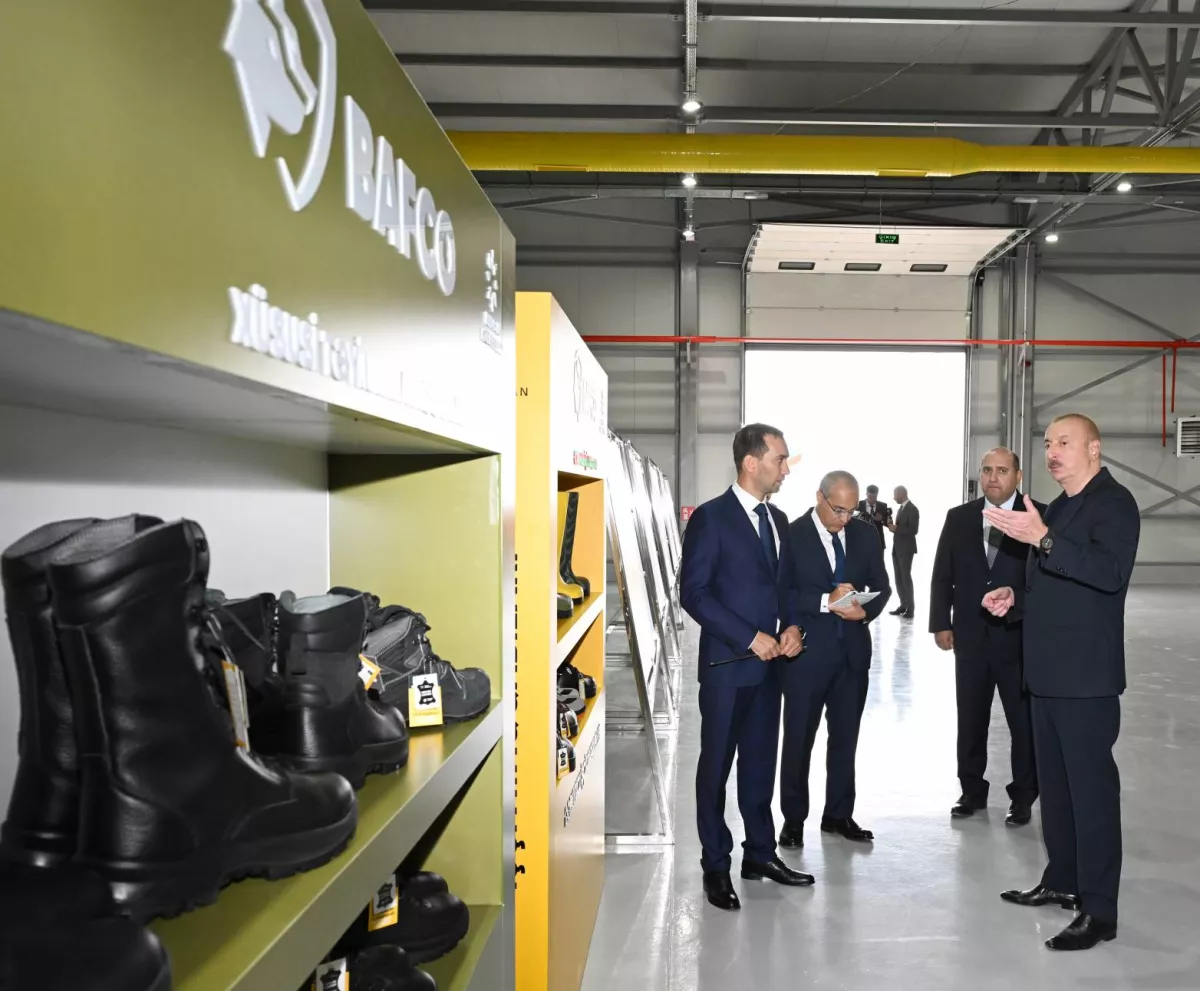
Following this, the president launched Eel Electric LLC's facility, which manufactures 0.4 kV, 10 kV, and 35 kV electrical distribution equipment, monoblock concrete substations, and charging equipment for electric vehicles. Forty percent of the plant's production is slated for export. The factory, which employs 70 people, primarily from Aghdam and nearby regions, is set to become a key supplier in the market.
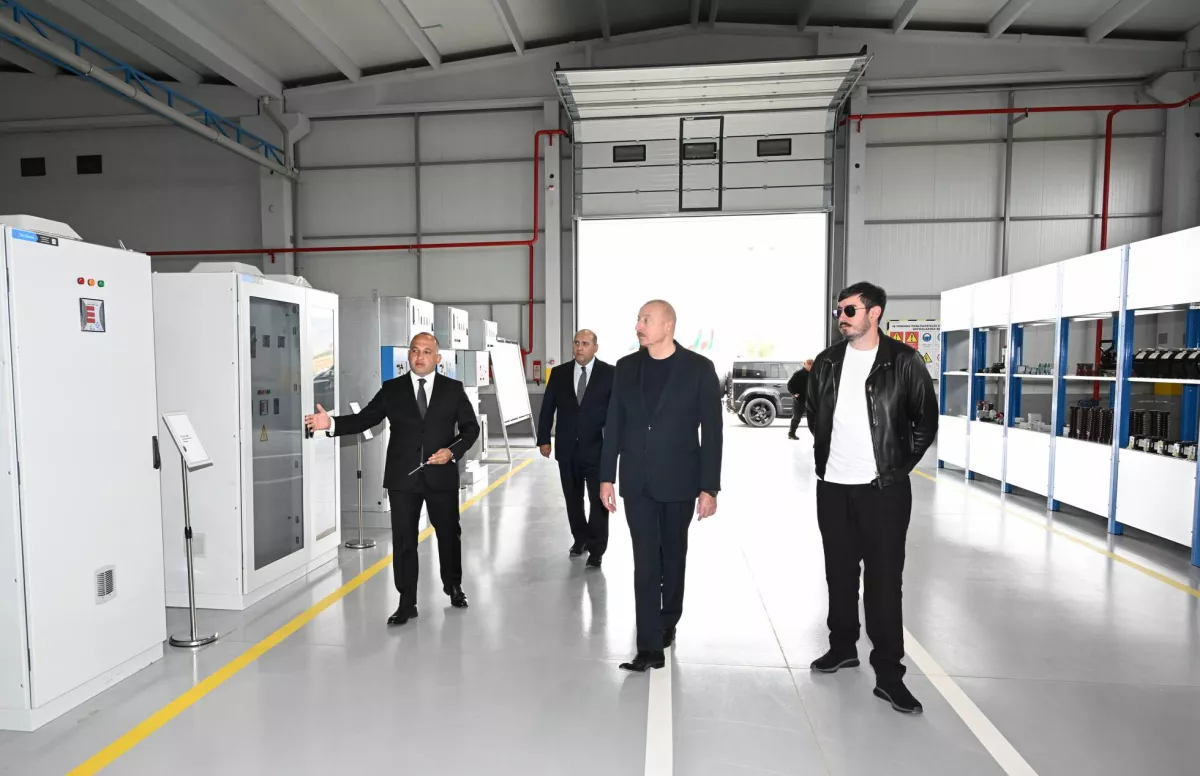
The president also attended the opening of Rail Trans Service LLC's plant, which specializes in the production of automation and telemechanics systems. With an annual output of 5,000 communication and signaling systems and 250 units of microprocessor centralization equipment, the plant will employ 60 workers.
Given the large-scale construction efforts in the Karabakh region, there is a high demand for building materials and specialized equipment. To optimize the supply of these materials and leverage local resources, much of what is needed is planned to be produced directly in the industrial zones of the liberated territories. In this regard, the Aghdam Industrial Park is forming a robust production cluster to supply the "Great Karabakh Construction" with essential materials.
On September 19, with the participation of the head of state, Mister Decor LLC inaugurated a factory in the park capable of producing 2.1 million rolls of wallpaper annually. The export-oriented facility, which employs 76 people, uses advanced German technologies in its production process.
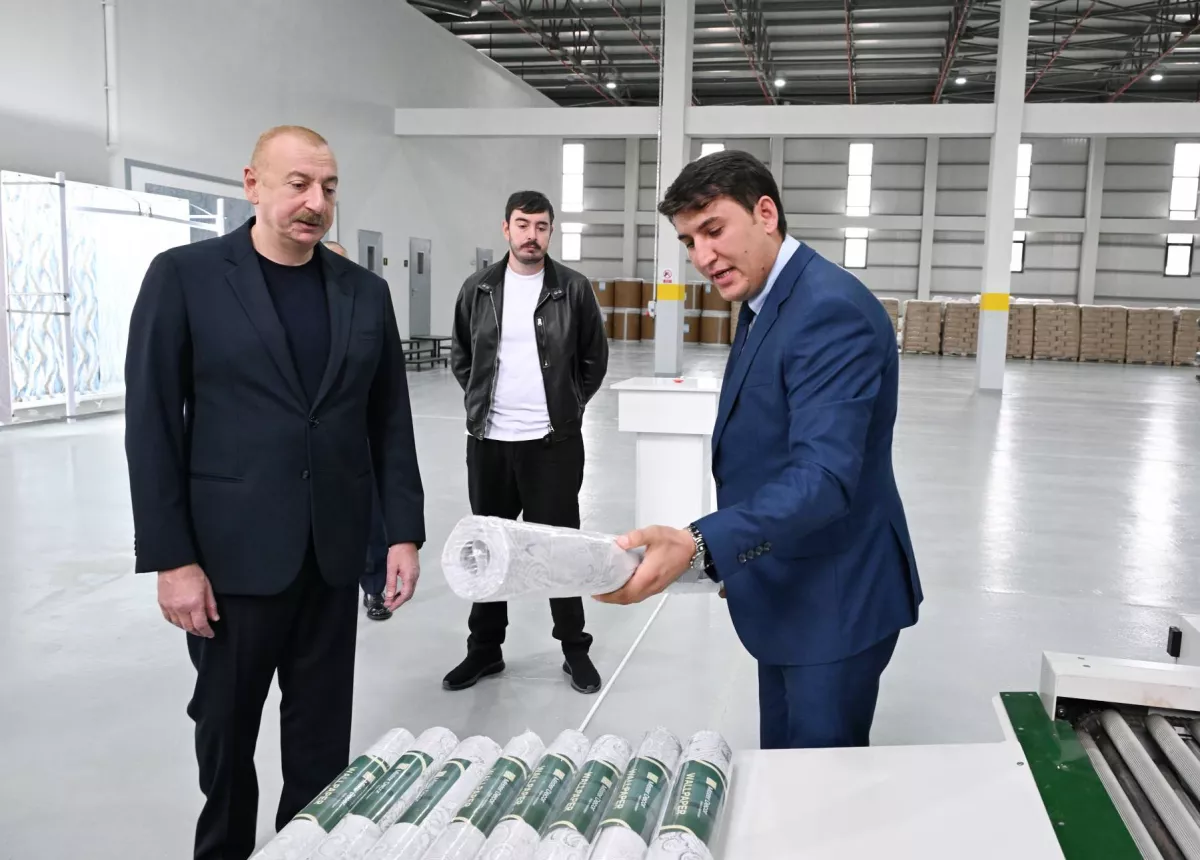
Production for the construction sector will also be established at the newly inaugurated Prof-Dam LLC, which specializes in the manufacture of corrugated sheets, metal roof tiles, sandwich panels, and various accessories for roofing and facade cladding. The facility utilizes cold metal processing technology from Italy, Finland, Türkiye, Russia, and China. Its annual capacity is projected to be 1.4 million square meters of corrugated sheets, 1 million square meters of metal roof tiles, 1 million square meters of sandwich panels, and 2,000 tons of roofing accessories, with 10% of the output intended for export.
Another key resident of the Aghdam Industrial Park, Metkons LLC, will supply the construction sector and other industries with ventilation and fire protection equipment, along with various metal products. The facility, equipped with technology from Türkiye, Italy, Russia, and China, will have an annual production capacity of 33,000 units.
Notably, businesses operating in the industrial parks of the liberated territories enjoy significant tax incentives. For a period of 10 years from the date of registration, they are exempt from profit, property, and land taxes. In return, the government undertakes the development of essential infrastructure, including the provision of electricity, natural gas, drinking and technical water, as well as high-speed internet access.
Additionally, special incentives are available for entrepreneurs in these regions: social insurance contributions are subsidized, and there are exemptions from VAT and customs duties on the import of machinery, technological equipment, installations, raw materials, and components used in production. Other supplementary benefits include financial assistance amounting to 20 per cent of the costs incurred for utilities (electricity, natural gas, water supply, and sewage) paid by producers registered in the region and not classified as high-risk taxpayers. Residents in the Karabakh region also have access to preferential loans to enhance financial accessibility for entrepreneurs, along with government guarantees and subsidies for these loans.
The availability of such incentives has had a very positive impact on the operations of residents in the Aghdam Industrial Park. For instance, through customs exemptions on equipment imports and VAT relief, the recently launched enterprises have collectively saved over 1.634 million manats ($961,000).








